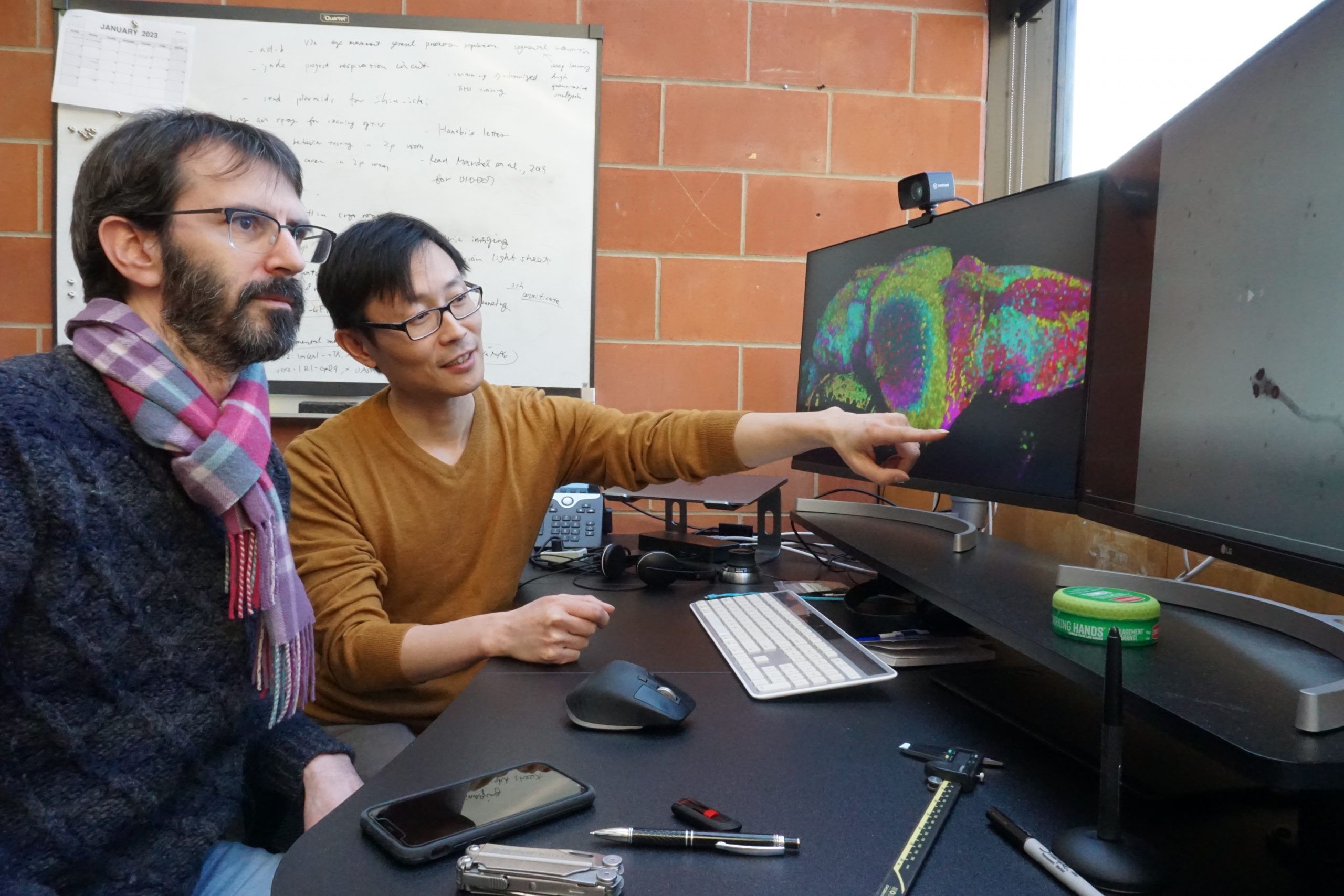by Sara Elhawash
Professors Guillaume Filion and Minoru Koyama, DSI members from the University of Toronto Scarborough’s Department of Biological Sciences, are advancing neuroscience with an innovative approach through the help of the Data Sciences Institute Catalyst Grant. Their work repurposes technology found in Google Translate and DeepL to translate images of brain activity into movements, offering a powerful understanding of the relationship between the brain and behaviour.
One main goal of neuroscience is to understand how complex connections between neurons lead to behaviour when reacting to stimuli. The researchers note that it is now possible to record the activity of tens of thousands of neurons simultaneously in behaving animals. However, there’s still a need for better analytical methods. Their project aims to develop a new approach to understanding the brain by exploring the relationship between neural activity and behaviour. The team will record the brain activity and movements of zebrafish and use a cross-attention mechanism to interpret the data. The ultimate goal is to change experimental research by introducing a different approach that goes beyond solving short-term problems or answering specific questions related to fish behaviour.
“As researchers, we are striving to use machine learning for scientific discovery by exploring how machines can teach us the things they figure out about nature. However, it is important to note that not all machine learning techniques are equally helpful in advancing our understanding of the brain. An AI that simply predicts behaviour from the activity of the brain may not give any insight into brain function “ explained Filion and Koyama. They emphasized that for an AI to help understand the brain, it must be programmed with explanation mechanisms from the start. This is crucial for advancing our understanding of the brain and ultimately developing treatments for brain-related disorders.
Interdisciplinary collaborations are key for advancing knowledge and discovery, according to the researchers. They emphasize the value of combining expertise from different disciplines to unlocking new insights. “The support from the DSI is making a significant difference by allowing us to invest in new research avenues,“ they noted. “The developments in this area could have revolutionary implications for experimental neuroscience.“
Gary Bader, DSI’s Associate Director, Research & Software, said, “This ground-breaking research is pushing the boundaries of interactions between machines and humans in the field of neuroscience. We are thrilled to support their innovative work and look forward to seeing its impact.“

